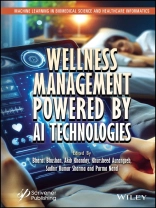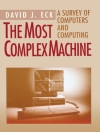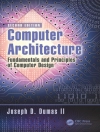This book is an essential resource on the impact of AI in medical systems, helping readers stay ahead in the modern era with cutting-edge solutions, knowledge, and real-world case studies.
Wellness Management Powered by AI Technologies explores the intricate ways machine learning and the Internet of Things (Io T) have been woven into the fabric of healthcare solutions. From smart wearable devices tracking vital signs in real time to ML-driven diagnostic tools providing accurate predictions, readers will gain insights into how these technologies continually reshape healthcare.
The book begins by examining the fundamental principles of machine learning and Io T, providing readers with a solid understanding of the underlying concepts. Through clear and concise explanations, readers will grasp the complexities of the algorithms that power predictive analytics, disease detection, and personalized treatment recommendations. In parallel, they will uncover the role of Io T devices in collecting data that fuels these intelligent systems, bridging the gap between patients and practitioners.
In the following chapters, readers will delve into real-world case studies and success stories that illustrate the tangible benefits of this dynamic duo. This book is not merely a technical exposition; it serves as a roadmap for healthcare professionals and anyone invested in the future of healthcare.
Readers will find the book:
- Explores how AI is transforming diagnostics, treatments, and healthcare delivery, offering cutting-edge solutions for modern healthcare challenges;
- Provides practical knowledge on implementing AI in healthcare settings, enhancing efficiency and patient outcomes;
- Offers authoritative insights into current AI trends and future developments in healthcare;
- Features real-world case studies and examples showcasing successful AI integrations in various medical fields.
Audience
This book is a valuable resource for researchers, industry professionals, and engineers from diverse fields such as computer science, artificial intelligence, electronics and electrical engineering, healthcare management, and policymakers.
Despre autor
Bharat Bhushan, Ph D, is an assistant professor in the Department of Computer Science and Engineering, School of Engineering and Technology, Sharda University, Greater Noida, India. He has published more than 150 research papers, contributed over 30 book chapters, and edited 20 books.
Akib Khanday, Ph D, is a post-doctoral research fellow in the Department of Computer Science and Software Engineering-CIT, United Arab Emirates University, Abu Dhabi, United Arab Emirates. His research interests include computational social sciences, natural language processing (NLP), and machine/deep learning.
Khursheed Aurangzeb, Ph D, is an associate professor in the Department of Computer Engineering, College of Computer and Information Sciences, King Saud University, Riyadh, Saudi Arabia. Over his 15 years of research, he has been involved in several projects related to machine/deep learning and embedded systems. His research interests focus on computer architecture, signal processing, and wireless sensor networks.
Sudhir Kumar Sharma, Ph D, is a professor and head of the Department of Computer Science at the Institute of Information Technology & Management, affiliated with GGSIPU, New Delhi, India. His research interests include machine learning, data mining, and security. He has published more than 60 research papers in various international journals and conferences and is the author of seven books in the fields of Io T, wireless sensor networks (WSN), and blockchain.
Parma Nand, Ph D, is the dean of the School of Engineering and Technology, Sharda University, Greater Noida, India. His expertise includes wireless and sensor networks, cryptography, algorithms, and computer graphics. He has published more than 85 papers in peer-reviewed journals and filed two patents.












